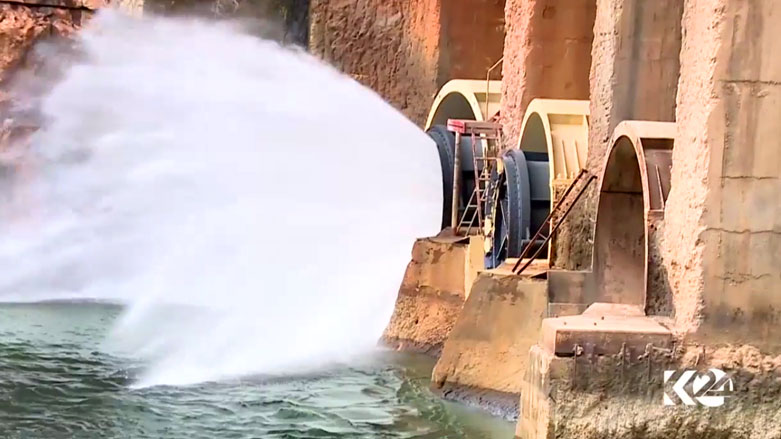KRG ministers agree to sweeping measures to address Kurdistan Region’s water scarcity

ERBIL (Kurdistan 24) – The Kurdistan Region’s Council of Ministers held a special session on Friday to try to resolve the ongoing water scarcity crisis throughout the region.
The meeting included representatives from the Ministries of Municipalities, Tourism, Agriculture and Water Resources, the Investment Authority, the Department of Foreign Relations, the Department of Coordination and Follow-up, governors, supervisors of administrative departments, general managers and consultants in the Projects Board, the Department of Media and Information said.
Ministers agreed to meet monthly to strategize on how to “confront water scarcity.”
The Cabinet will allocate 1.25 billion Iraqi dinars to the Ministry of Municipalities and Tourism monthly until October, and grant provinces and administrative departments the freedom to act under the supervision of the ministry.
The ministry is to prepare a report on water projects, including the Barzan water pipeline project and Excretion Water-4, in order to ensure the companies can implement and finance them.
In the more immediate future, the electricity ministry will prepare a study within days on how to provide 24-hour electric power to drinking water wells. All of the ministries are obligated to provide resources necessary to ensure drinking water reaches neighborhoods currently dealing with water scarcity.
The Ministry of Municipalities and Tourism will further determine the condition of transmission and water filter pipes, meters, and projects for repair, and study how to collect water revenue.
Iraq in general, and the Kurdistan Region in particular, are under pressure to provide clean drinking water due to low rainfall and issues with neighboring countries.
About 70 percent of Iraqi water resources flow from neighboring countries, and the Tigris and Euphrates rivers, whose sources are in Turkey, are of particular importance.
The Council of Ministers tasked the Ministries of Agriculture and Water Resources and Electricity to study the possibility of dam-generated electric power. The foreign ministry is to meet with its Turkish and Iranian counterparts over the issue of closures, as well as the practice of mixing fresh water with rainwater that carries mud and dust.
The Council of Ministers concluded the meeting by directing the Minister of the Region for Parliament Affairs to work with Parliament to formulate a law to protect the water wealth in the region.